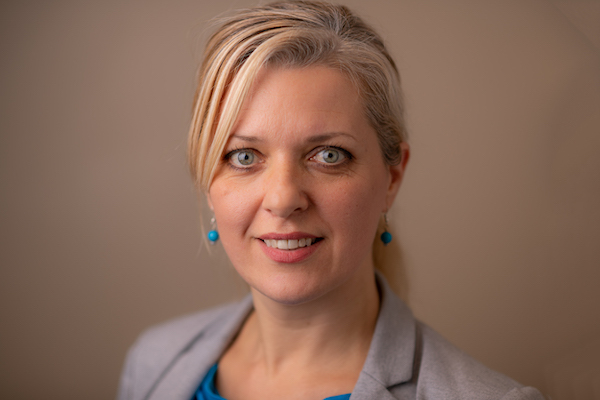This is a profile from the 2020 version of the DataIQ 100.
The 2021 list is available here
Miriam Vizvary, global director of data, Hive Centrica

Path to power
I qualified as an English teacher but got my first graduate job as a data analyst programmer, where I learnt all about ETL and warehousing. I spent my early years programming in DataStage, working on large data warehousing programmes mostly as a contractor.
Around 2007, I decided to retrain as a project manager and go down the management route. I left contracting and started to work my way up the corporate ladder. Two to three years into my management journey, I had a choice to make: IT or data leader. I chose data as I saw the possibilities of achieving amazing results for organisations. I feel I made the right choice and hoping to continue to achieve those great results.
What is the proudest achievement of your career to date?
I have three I’d like to mention in no particular order. Firstly, when I joined WRB, my task was to build a strong data team and create a state of the art management information reporting environment. I am very proud of having achieved it within 18 months.
Secondly, data commercialisation at Centrica. A company like Centrica has very rich, very powerful datasets that can positively affect people’s lives. As a result of my tenacity, drive and passion, Centrica is now actively looking at creating data products that will benefit their customers.
Finally, the Liberty Syndicates data warehouse, which is a multi-million pound multi-year project for which I received an award as one of the most successful projects in the history of the company.
Who is your role model or the person you look to for inspiration?
My role models in my career have changed over time as I grow. One constant role model who has had a major influence on me has been my grandmother, who is an exceptionally strong, hardworking matriarch. She has built a successful business; she has an admirable work ethic and she balanced work and life effectively.
Did 2019 turn out the way you expected? If not, in what ways was it different?
Centrica and Hive have gone through massive changes, which presented challenges but also opportunities. We built a data lake and put data on the map by creating a data portal. However, the business is going through a lot of change and, as a result, the focus has not been on data. As in every business that is going through major structural overhaul, objectives and strategy is unclear and that can result in confusion. 2020 is a lot more hopeful for Centrica.
What do you expect 2020 to be like for the data and analytics industry?
Data is what IT used to be like 20 years ago; there was a trend to get the latest IT equipment regardless of business needs. Most companies have “data driven” as an objective, although like in the early days of IT transformations there is a lack of understanding as to what data driven means.
Some skills in the market are reaching saturation point, which will result in rates and salaries dropping, especially in data science related roles. The focus must shift from general data science to commercially driven data science that supports the business strategy, rather than tries to get results in isolation.
Data and technology are changing business, the economy and society – what do you see as the biggest opportunity emerging from this?
Data and technology changes are shifting attitudes towards individualism and non-conformity. The biggest opportunity is to be much better at understanding individual needs. Everything from advertising to travel route calculations should be tailored based on individual preferences and the choices available will continue to grow.
What is the biggest tech challenge you face in ensuring data is at the heart of your digital transformation strategy?
The biggest challenge tends to be business-led not tech-led. Businesses need to adapt to changes resulting from new tech being available and all too often they are unable to adapt fast enough to take advantage. For relatively new companies that don’t carry the cost of legacy systems it’s much easier to adapt quickly, but for companies with hundreds of years of legacy, be it digital or paper, tech challenges tend to lie with the transformations of the legacy estates.
DataIQ is a trading name of IQ Data Group Limited
10 York Road, London, SE1 7ND
Phone: +44 020 3821 5665
Registered in England: 9900834
Copyright © IQ Data Group Limited 2024